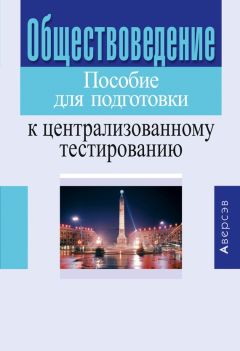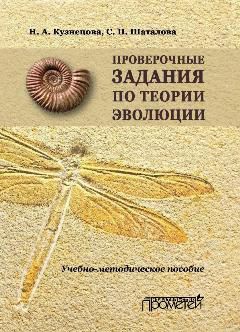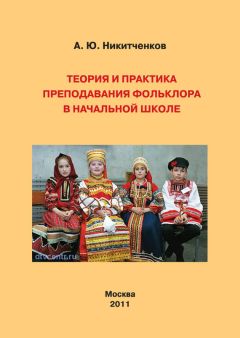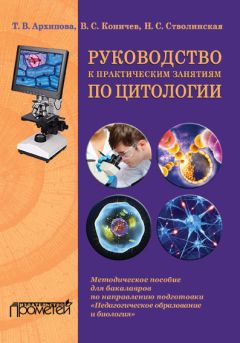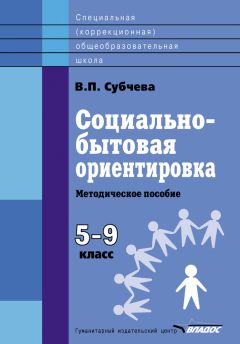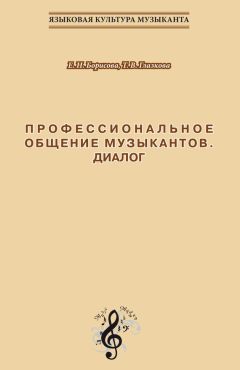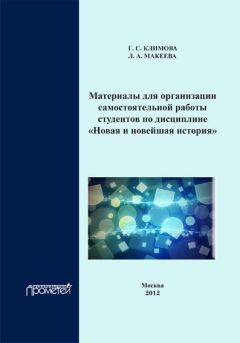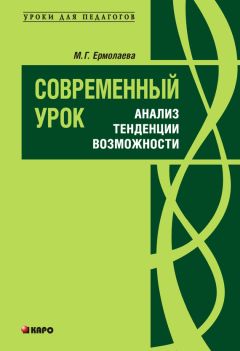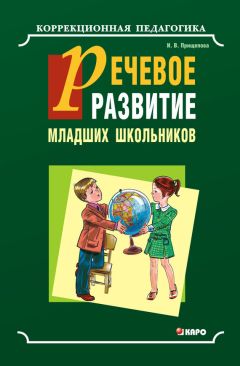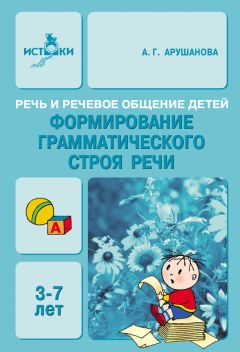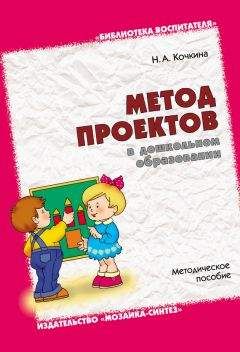З. Мадиева - Английский язык. Учебно-методическое пособие к практическим занятиям для биологов бакалавриата и магистратуры
Скачивание начинается... Если скачивание не началось автоматически, пожалуйста нажмите на эту ссылку.
Жалоба
Напишите нам, и мы в срочном порядке примем меры.
Описание книги "Английский язык. Учебно-методическое пособие к практическим занятиям для биологов бакалавриата и магистратуры"
Описание и краткое содержание "Английский язык. Учебно-методическое пособие к практическим занятиям для биологов бакалавриата и магистратуры" читать бесплатно онлайн.
Предлагаемое пособие предназначается для работы с бакалаврами и магистрами, обучающихся по специальности "биология".
Сборник состоит из адаптированных и оригинальных текстов. Каждый урок включает текст для активной переработки и текст для устного и письменного перевода. Разработан лексико–грамматический материал, серия упражнений к текстам и активный словарь. В конце дан дополнительный материал – оригинальные тексты из английских и американских источников и Интернета для подготовки докладов и написания рефератов. Пособие позволяет приобрести навыки чтения и перевода специальной литературы, усвоить терминологию и развить устную речь.
Мулдагалиева А.А., Гумарова Ш.Б., Мадиева З.К.
Английский язык. Учебно – методическое пособие к практическим занятиям для биологов бакалавриата и магистратуры
SECTION I
UNIT I
New words and expressions:
protection – защита
pollution – загрязнение
environment – окружающая среда
exhaust fumes – выхлопные газы
source – источник
resourсеs – ресурсы
chemical substances – химические вещества
drainage – канализация, сток
purifier – очиститель
dump – свалка
disposal – расположение
sewage – сточные воды
calamity – бедствие
contamination – загрязнение, заражение
loss – потеря
species – виды
race – быстрое движение, путь
advancement – успех, прогресс
safeguard – гарантия, охрана, охранять
scatter – разбрасывать, рассеивать
distressing – огорчительный, внушающий беспокойство
irretrievable – непоправимый, невозместимый
Read the international words and give their Russian equivalents:
engineering, speculate, faculty, problem, ecology, civilization, industry, air, proportions, system, number, variety, expansion, urban, territory, asphalt, production, complexity, chemical, substances, combinations, role, resources, drainage, sphere, reason, reservoir, factory, era, national, ocean, seriously, figure, hectare, atmospheric, billion, ton, genetic, catastrophe, technological, investment, essential, protection, community, public.
MY SPECIALITY – APPLIED ECOLOGYI am a student of the Faculty of Geography. My future speciality is applied ecology.
That the problem of pollution and ecology has become the most important one for mankind is evident to all. The more civilization is developing, the greater the ecological problems are becoming. Air, water and soil pollution by industry is now reaching tremendous proportions. It destroys the environment in big cities. Air is polluted mainly by heating systems and cars. You know how heavy the traffic is in big cities. The slower the traffic, the more exhaust fumes there are. The acuteness of the problem depends on how well the country is developed and on the number of cars.
The variety of polluting sources is growing. The expansion of urban territories with asphalt-covered roads, the increase in the production and the complexity of chemical substances and combinations used in everyday life have led to the ever increasing role in polluting water resources played by the drainage from the territory of cities, towns and villages. Such scattered sources of pollution cannot be enclosed in a pipe with a purifier mounted on its outlet.
The sphere of water pollution is broadening. During recent years a new problem appeared – the pollution of ground water. It is caused by a great variety of reasons: numerous waste dumps scattered all over the area and exposed to the influence of rainwater, polluted surface reservoirs, the disposal of sewage from factories (waste matter as well) and the use of water on oilfields.
In our era water pollution is changing from a national to an international problem, especially in territories where rivers cross several countries. The seas and oceans are also becoming seriously polluted.
The figures of the Earth's ecological calamities are distressing. Forests are disappearing at the rate of 20 hectares per minute, or more than 500 000 hectares a year. The volume of atmospheric oxygen annually decreases by 10 billion tons – a consequence of the destruction of forests and the contamination of water reservoirs.
The planet's genetic fund has sustained irretrievable losses: hundreds of species of animals, birds, fish and plants have disappeared forever. All these figures show our race to ecological catastrophe.
Our scientific knowledge and technological advancement make it possible to eliminate It, if people use good will and make considerable Investments for that purpose.
The essential feature of environmental protection is that many problems can be solved only at the level of world community. It is the joint efforts of many scientists and special public organizations that can deal with the problem and make necessary measures to protect the environment.
Joint actions of all countries can eliminate pollution and achieve successes in purifying air, water and soil and in safeguarding national resources.
EXERCISES:
I. Translate the following into English:
protect – protection, pollute – pollution, contaminate – contamination, purify – purifier – purification, environment – environmental, chemistry – chemist – chemical, source – resources, dispose – disposal, sewage – sewerage, lose – loss, eliminate – elimination, advance – advancement.
2. Find in the text the English equivalents for the following words and word-combinations:
проблема загрязнения окружающей среды, загрязнять, человечество, цивилизация, развиваться, дороги с асфальтовым покрытием, дождевая вода, сброшенная вода, исчезать, со скоростью, последствия разрушения, водохранилище, генофонд планеты, экологическая катастрофа, технический прогресс, устранить, сделать значительный вклад, основная черта, защита окружающей среды, разрешить проблему, на уровне мирового сообщества, совместные усилия, общественные организации, принять меры, очистка воздуха, охрана, выхлопные газы, свалка.
3. Open the brackets and use the proper tense:
1) The problem of pollution (become) the most important one for mankind,
2) Air, water and soil pollution (destroy) the environment.
3) The sphere of water pollution (broaden).
4) Water pollution (change) from a national to an international problem.
5) The planet's genetic fund (sustain) irretrievable losses.
4. Make questions of the following statements and then give short answers to each of them:
1) Hundreds of species of animals and plants have disappeared forever.
2) Our scientific knowledge and technological advancement make it possible to eliminate ecological catastrophe.
3) The essential feature of environmental protection is that many problems can be solved only at the level of world community.
4) Joint actions of all countries can eliminate pollution.
5) Air, water and soil pollution by industry is now reaching tremendous proportions.
6) Air is polluted mainly by heating systems and cars.
5. Answer the questions:
1) What is one of the most important problems for mankind now?
2) What is ecology? Give your definition.
3) What are the disadvantages of industrial development?
4) How does water, air, soil become polluted?
5) Why is the problem of water pollution becoming a global problem?
6) Why do the environmental problems require the cooperation of alt nations?
7) What makes it possible to eliminate air, water and soti pollution?
8) Why have you chosen the profession of an ecologist?
UNIT II
New words and expressions:
conservation – охрана природы
desiccation – высушивание
wildlife – живая природа
riverine – речной, прибрежный
pothole – пещера
bounty – щедрость
jeopardy – опасность
alteration – чередование
dam – плотина, преграждать
exacerbate – обострять
attempt – попытка, пытаться
clean-up – уборка, чистка
bird of prey – хищная птица
comprehensive – всесторонний
under way – на ходу
charge – нагрузка, заведовать
motivate – побуждать
desert – пустыня
Read the international words and give their Russin equivalents:
effect, nuclear, testing, range, population, flora, fauna, occupy, territory, peak, climate, zone, steppe, landscape, cultivating.
CLIMATE FOR CONSERVATION IN KAZAKHSTANUntil recently, Kazakhstan has been better known for the harmful effects of the Semipalatinsk nuclear testing range and the desiccation of the Aral Sea than for its wildlife. In fact, the vast country supports rich and diverse population of flora and fauna. Kazakhstan occupies an enormous territory, extending from the Volga River on the West to the Altai Mountains on the East and from the Southern Urals and Western Siberia in the North to the snowy peaks of the Tien Shan Range and the deserts of Central Asia in the South. The country's climatic zones include everything from steppes, deserts and semideserts to mountain woodlands, riverine wetlands and pothole lakes. In this varied landscape can be found 104 species of amphibiance, 52 of reptiles, 488 of birds and 187 of mammals and nearly 5000 species of higher plants.
Now, however, this natural bounty is in jeopardy. Although Kazakhstan's population and its impact on the land are comparatively low; its biodiversity is seriously threatened in a number of ways. The alteration of the land that occured in the 1960's, when Khruschev ordered the country to begin cultivating corn on a mass scale, caused widespread damage. Rivers that fed steppe lakes were dammed and agricultural cultivation of the steppes, floodplains and marshes forced changes in natural ecosystems, exacerbated by the use of chemical pesticides, many already banned in the West. In addition, Kazakh industry generally does not employ any emission-control equipment or attempt cleanup of the environmental damage it causes. As a result, many natural species are now officially considered rare or endangered.
The country's economic crisis had led to a lessening of the human impact on natural ecosystems due to a decline in agriculture and industrial production. The situation could, however, take a rapid turn for the worse since the largely unregulated transition to a market economy has encouraged extensive commercil use of many plant and animal species including the export of natural products used for medicinal purposes such as antilope horn; the sale of rare insects in demand by collectors and the capture of birds of prey.
Unfortunately, no comprehensive natural conservation program exists at the present time. The isolated projects that are under way are targeted at regions of environmental crisis, such as the Aral Sea and the area around Semipalatinsk nuclear testing ground. Governmental structures charged with developing a national conservation strategy appear slow and unmotivated. The state, occupied with solving serious economic problems, cannot pay adequate attention to nature conservation.
In Kazakhstan no mass movement for nature protection exists as it does in western countries, but a few nongovernmental groups are beginning to form and take action. The activities of nongovermental organizations which are occuring in more and more cities around the country raise hopes for improvement of the nature conservation climate in Kazakhstan.
From "Surviving Together", T. Bragina, a scientist worker.EXERCISES:
1. Translate the following into English:
motivate – motivation – unmotivated, occupy – occupation, serious – seriously, economy – economic – economics, attention – attentive – inattentive – attentively, nature – natural, conservation – conservative – conserve, protect – protection, form – formation, act – activity – action, organize – organization, hope – hopeful – hopeless – hopefulness.
2. Find in the text the English equivalents for the following words and word-combinations:
массовое движение, защита природы, западные страны, неправительственные организации, до недавнего времени, ядерные испытания, полигон, огромная территория, климатические зоны, полупустыня, пестициды, оборудование, рыночная экономика, в настоящее время, правительственные структуры, экономические проблемы.
3. Make questions of the following statements and then give short answers to each of them:
1) Kazakhstan occupies an enormous territory.
2) In this varied landscape a great number of species can be found.
3) Kazakhstan"s population is comparatively low.
4) Agricultural cultivation of the steppes forced changes in natural ecosystem.
5) Many natural species are now officially considered rare or endangered.
4. Answer the questions:
1) What species can be found in Kazakhstan?
2) What is the population of Kazakhstan?
3) What climatic zones of our country do you know?
4) What regions of environmental crisis in Kazakhstan are known to you?
5. Read the following sentences and point out the subject and the predicate in each of them:
1) Kazakhstan's biodiversity is seriously threatened.
2) The country's economic crisis had led to a lessening of human impact on natural ecosystems.
3) The largely unregulated transition to a market economy has encouraged extensive commercial use of many plant and animal species.
4) The projects are targeted at regions of environmental crisis.
5) A few nongovermental groups are beginning to take action.
UNIT III
New words and expressions:
salty – соленый
devastate – опустошать
trigger – вызывать
reverse – изменить
unfold – развертывать
basin – бассейн
shrink (shrunk) – садиться, вызывать усадку
irrigation – орошение
reduce – уменьшать
inflow – приток
evaporation – испарение
precipitation – выпадение осадков
estimate – оценивать
encompass – окружать
flow – течение
arise – возникать
saline – соляной
fishery – рыбный промысел
Подписывайтесь на наши страницы в социальных сетях.
Будьте в курсе последних книжных новинок, комментируйте, обсуждайте. Мы ждём Вас!
Похожие книги на "Английский язык. Учебно-методическое пособие к практическим занятиям для биологов бакалавриата и магистратуры"
Книги похожие на "Английский язык. Учебно-методическое пособие к практическим занятиям для биологов бакалавриата и магистратуры" читать онлайн или скачать бесплатно полные версии.
Мы рекомендуем Вам зарегистрироваться либо войти на сайт под своим именем.
Отзывы о "З. Мадиева - Английский язык. Учебно-методическое пособие к практическим занятиям для биологов бакалавриата и магистратуры"
Отзывы читателей о книге "Английский язык. Учебно-методическое пособие к практическим занятиям для биологов бакалавриата и магистратуры", комментарии и мнения людей о произведении.





